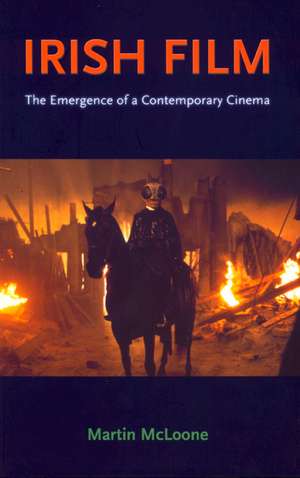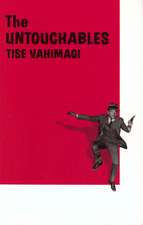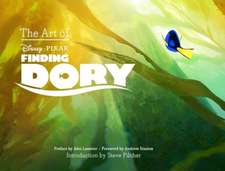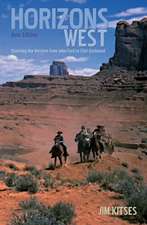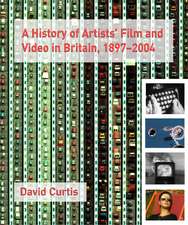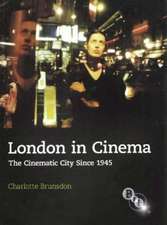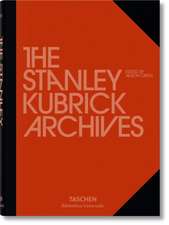Irish Film: The Emergence of a Contemporary Cinema
Autor Martin McLooneen Limba Engleză Paperback – oct 2000
Preț: 239.21 lei
Nou
Puncte Express: 359
Preț estimativ în valută:
45.77€ • 47.70$ • 37.90£
45.77€ • 47.70$ • 37.90£
Carte disponibilă
Livrare economică 13-27 martie
Preluare comenzi: 021 569.72.76
Specificații
ISBN-13: 9780851707938
ISBN-10: 0851707939
Pagini: 264
Ilustrații: illustrations, bibliography, filmography
Dimensiuni: 153 x 234 x 17 mm
Greutate: 0.44 kg
Ediția:2000
Editura: British Film Institute
Colecția British Film Institute
Locul publicării:London, United Kingdom
ISBN-10: 0851707939
Pagini: 264
Ilustrații: illustrations, bibliography, filmography
Dimensiuni: 153 x 234 x 17 mm
Greutate: 0.44 kg
Ediția:2000
Editura: British Film Institute
Colecția British Film Institute
Locul publicării:London, United Kingdom
Descriere
Energetic
film
activity
in
Ireland
has led
to critical
debate
about
the
kinds
of
films
that
are
made
and
the
representation
of
Ireland
they
promote.
This
book
explores
the
images
of
the
Irish
found
in
the
cinemas
of
the
USA
and
Britain
and
considers how
recent
Irish-made
films
might
be
said
to
offer
a
response
to
them.
Cuprins
Cultural
nationalism
and
popular
culture
in
Ireland.-
Cinematic
Ireland
the
traditions
of
representation.-
Modernization
and
cultural
ferment
in
Ireland.-
Re-imaging
the
nation
issues
and
themes
in
recent
Irish
cinema.-
Violence
and
Northern
Ireland.-
The
abused
child
of
history
"The
Butcher
Boy".-
Landscapes
and
community
""December
Bride".-
Women,
nation,
identity;
short
films
and
the
new
generation.
Notă biografică
MARTIN
MCLOONE
Textul de pe ultima copertă
This
is
an
exploration
of
the
representation
of
Ireland
and
the
Irish
in
British
and
US
cinemas,
as
well
as
Irish
made
films.
The
book
offers
readings
of
a
wide
range
of
key
films
such
as
"The
Butcher
Boy"
(1998),
"Patriot
Games"
(1993)
and
"Angela's
Ashes"
(2000).
It
discusses
the
range
of
Irish
cinematic
productions
from
the
low
budget
to
the
bigger
Hollywood
productions
and
looks
at
the
"second"
cinema
of
directors
such
as
Neil
Jordan
and
Jim
Sheridan
where
medium-sized
budgets
allow
for
creative
control
in
Ireland.
With
debates
about
national
and
cultural
identity,
post-national
cinema
and
the
role
of
the
state,
the
book
provides
an
overview
of
how
a
small
film
culture
such
as
Ireland's
can
live
successfully
in
the
shadow
of
Hollywood.
